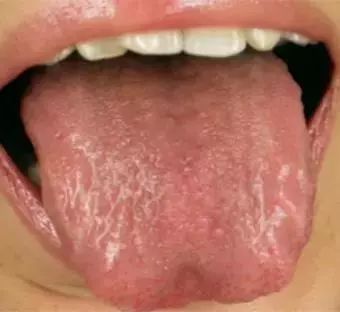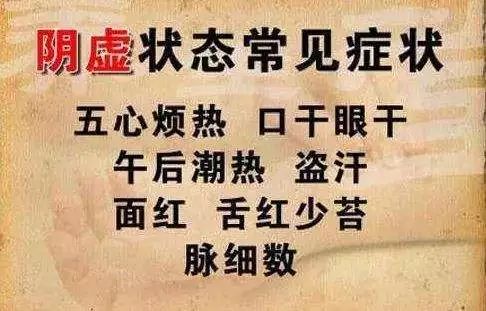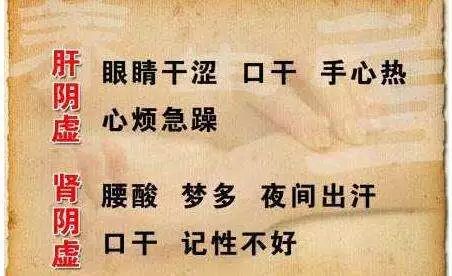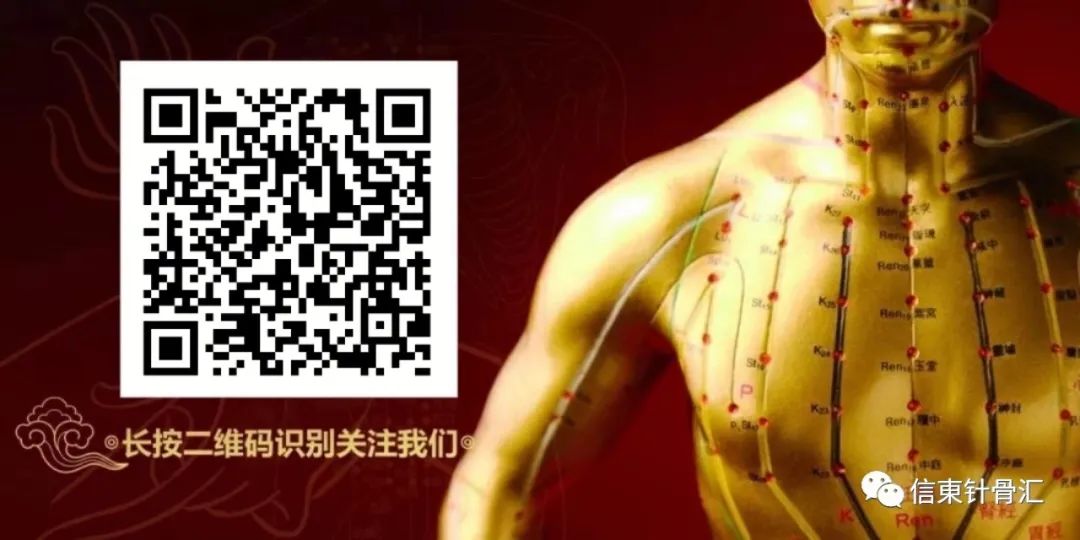
Modern individuals often experience mental strain and stay up late, leading to prolonged Yin deficiency and internal heat, resulting in energy depletion. As the ancients said, “when the oil is exhausted, the lamp goes out.” In this article, Teacher Luo Dalun discusses what Yin deficiency is and how to determine if you are affected. By making changes and cultivating a wise heart, one can achieve health and vitality!
1. What is Yin Deficiency?

Yin deficiency refers to the pathological phenomenon of deficiency in substances such as essence, blood, or body fluids.Since essence, blood, and body fluids are all considered Yin, this condition is termed Yin deficiency, commonly seen in patients who have suffered from prolonged illness or heat diseases that lead to the internal consumption of Yin fluids.In modern society, due to excessive mental strain and depletion of Yin fluids, there are many individuals with Yin deficiency among white-collar workers. For instance, many people who stay up late have a high incidence of Yin deficiency. I have encountered many white-collar workers who go to bed after midnight, and a significant number of them exhibit signs of Yin deficiency.Improperdiet can also lead to Yin deficiency. I have seen many women who enjoy spicy hot pot or barbecued food suffer severely from Yin deficiency. This may be acceptable in Sichuan, but in the dry climate of Beijing, such spicy foods can harm Yin.So, how do we determine if one has Yin deficiency? Traditional Chinese Medicine primarily assesses this through symptoms. There is a saying, “Yin deficiency leads to internal heat,” because when body fluids are insufficient, Yin cannot control Yang, resulting in symptoms such as five hearts feeling hot or afternoon tidal fever, night sweats, flushed cheeks, weight loss, dry mouth and throat, a desire for cold water, yellow urine, dry stools, and a red tongue with little coating. Note: This is a tongue manifestation of Yin deficiency in adults.Among these symptoms, the five hearts feeling hot refers to the palms and soles feeling hot, even to the point of needing to stick them out of the covers while sleeping. Some people feel comfortable only when their palms are pressed against a cool wall. The four hearts refer to the palms and soles, plus the heart itself, which always feels troubled, dry, and hot, thus totaling five hearts feeling hot.The term afternoon tidal fever means that the heat comes in waves, which is characteristic of Yin deficiency heat; generally, those with Yin deficiency do not feel hot in the morning but start to feel hot in the afternoon.Night sweats are well-known, referring to sweating during sleep, with some severe cases soaking the pillow and sheets. Daytime sweating is called spontaneous sweating.In fact, among these symptoms, the most significant indicators are a red tongue and thin coating, or even no coating at all, with the red tongue being the primary indicator.Additionally, the pulse is thin and rapid; while many may not recognize this, it is important to note that such individuals have a slightly faster pulse than usual.
Note: This is a tongue manifestation of Yin deficiency in adults.Among these symptoms, the five hearts feeling hot refers to the palms and soles feeling hot, even to the point of needing to stick them out of the covers while sleeping. Some people feel comfortable only when their palms are pressed against a cool wall. The four hearts refer to the palms and soles, plus the heart itself, which always feels troubled, dry, and hot, thus totaling five hearts feeling hot.The term afternoon tidal fever means that the heat comes in waves, which is characteristic of Yin deficiency heat; generally, those with Yin deficiency do not feel hot in the morning but start to feel hot in the afternoon.Night sweats are well-known, referring to sweating during sleep, with some severe cases soaking the pillow and sheets. Daytime sweating is called spontaneous sweating.In fact, among these symptoms, the most significant indicators are a red tongue and thin coating, or even no coating at all, with the red tongue being the primary indicator.Additionally, the pulse is thin and rapid; while many may not recognize this, it is important to note that such individuals have a slightly faster pulse than usual.
2. Yin Deficiency in Various Organs
Yin deficiency can be further categorized into deficiencies in various organs.For example, lung Yin deficiency syndrome refers to insufficient lung Yin, leading to the internal generation of false heat. This is often caused by prolonged coughing that injures Yin or by the later stages of heat diseases that damage Yin fluids. The specific manifestations include dry cough without phlegm or with scanty, sticky phlegm, dry mouth and throat, weight loss, afternoon tidal fever, five hearts feeling hot, night sweats, flushed cheeks, and in severe cases, blood-streaked phlegm, hoarseness, red tongue with little fluid, and thin rapid pulse.There is also heart Yin deficiency, which manifests as insomnia, vivid dreams, palpitations, forgetfulness, irritability, night sweats, five hearts feeling hot, dry mouth and throat, red tip of the tongue, little coating, and thin rapid pulse. There may also be flushed cheeks, irritability, dizziness, and other symptoms of false fire.These conditions are often seen in individuals with chronic liver and kidney insufficiency, true Yin depletion, or those who have not recovered from the later stages of heat diseases. In modern society, due to high work pressure, excessive thinking can deplete heart blood, leading to heart Yin deficiency. Insufficient Yin blood fails to nourish the heart and calm the spirit, resulting in palpitations, insomnia, vivid dreams, forgetfulness, and other symptoms. Yin deficiency with internal heat presents as night sweats, irritability, hot palms and soles, dry mouth and throat, red tip of the tongue, little coating, and thin rapid pulse. Flushed cheeks, dizziness, and other symptoms indicate false fire.Another example is stomach Yin deficiency syndrome, which refers to insufficient stomach Yin. This is often caused by prolonged stomach diseases that do not heal, or by the later stages of heat diseases where Yin fluids have not recovered, or by excessive consumption of spicy foods, or emotional distress leading to Qi stagnation that consumes stomach Yin. The main manifestations include: dull pain in the stomach area, lack of appetite, dry mouth and throat, hard stools, or discomfort in the stomach area, or nausea, red tongue with little fluid, and thin rapid pulse.In modern society, spleen Yin deficiency syndrome is particularly important, referring to insufficient spleen Yin fluids, leading to inadequate nourishment and weak transformation. This is often due to external warm diseases that consume Yin fluids, or inherent Yin deficiency, or emotional distress leading to liver Qi stagnation that injures Yin fluids, or excessive consumption of spicy foods, or the inappropriate use of warming and drying herbs. Observations suggest that excessive use of hormones in the feeding of meat animals may lead to many meat-loving individuals, especially children, suffering from spleen Yin deficiency, possibly related to the heating nature of hormones that harm Yin.The manifestations of spleen Yin deficiency include reduced appetite, preference for meat, bland taste, bloating after eating, weight loss, fatigue, little saliva, dry lips, bright red lips, five hearts feeling hot, hard stools, short yellow urine, red tongue with dry thin coating or no coating, and thin rapid pulse. Such children are often very active, some cannot stop moving, and may even have a volatile temper.There is also liver Yin deficiency syndrome, which refers to the loss of Yin fluids, leading to the liver losing its moistening function, failing to control Yang, resulting in internal heat disturbance, primarily manifested as dizziness, dry eyes, rib pain, and irritability.Liver Yin deficiency specifically manifests as dizziness, dry eyes, reduced vision, or dull pain in the ribs, facial heat or flushed cheeks, or twitching of the hands and feet, dry mouth and throat, five hearts feeling hot, tidal fever and night sweats, red tongue with little coating, thin rapid pulse, irritability, and a tendency to become angry. Lastly, there is kidney Yin deficiency syndrome, which refers to insufficient kidney Yin fluids, leading to weakened nourishing and moistening functions. This is often due to inherent Yin deficiency, prolonged illness harming the kidneys, excessive sexual activity, heat diseases harming Yin, or excessive consumption of warming and drying substances. Clinical manifestations include dizziness, tinnitus, weakness in the lower back and knees, hair loss, loose teeth, insomnia with vivid dreams, tidal fever and night sweats, five hearts feeling hot, dry throat and flushed cheeks, red tongue with little fluid, thin rapid pulse, with men possibly experiencing nocturnal emissions and women having scanty or absent menstruation.
Lastly, there is kidney Yin deficiency syndrome, which refers to insufficient kidney Yin fluids, leading to weakened nourishing and moistening functions. This is often due to inherent Yin deficiency, prolonged illness harming the kidneys, excessive sexual activity, heat diseases harming Yin, or excessive consumption of warming and drying substances. Clinical manifestations include dizziness, tinnitus, weakness in the lower back and knees, hair loss, loose teeth, insomnia with vivid dreams, tidal fever and night sweats, five hearts feeling hot, dry throat and flushed cheeks, red tongue with little fluid, thin rapid pulse, with men possibly experiencing nocturnal emissions and women having scanty or absent menstruation.
3. How Should Individuals with Yin Deficiency Adjust Their Lifestyle?
First, one should control their diet. Individuals with Yin deficiency should consume more cooling and nourishing foods, favoring sweet, cool, moistening, and Yin-nourishing foods, as well as fresh vegetables and moistening fruits. They should avoid spicy and stimulating foods, warming and drying foods, fried or roasted items, foods that are excessively hot, and foods high in fat.Here are some recommended foods for individuals with Yin deficiency:Duck meat: Nourishes Yin and supports the stomach. The “Compendium of Materia Medica” states: “Nourishes Yin and eliminates steaming heat.” Renowned Qing Dynasty physician Wang Mengying noted in his “Dietary Records of Suixi Residence” that duck meat “nourishes the Yin of the five organs, clears the heat of deficiency, and nourishes the stomach and generates fluids.” It is commonly believed that duck is the ideal nourishing food for those with Yin deficiency. Recently, I reviewed the dietary records of Emperor Qianlong and found that he frequently consumed duck dishes, almost daily. He lived to be eighty-nine years old, the longest-lived emperor in history, and his attention to dietary health was likely a significant factor.Pork (skin): Pork has the effect of nourishing Yin and moistening dryness. Qing Dynasty physician Wang Mengying observed that blacksmiths working with iron were exceptionally dry and hot, yet remained healthy. When he inquired about the reason, they said they drank soup made from lean pork, leading him to understand the nourishing properties of pork. He stated: “Pork nourishes kidney fluids, replenishes stomach juices, nourishes liver Yin, and moistens the skin, stopping thirst.” The “Essentials of Materia Medica” states: “Pork has a rich flavor, moistens the intestines and stomach, generates fluids, and benefits the skin.” Therefore, it is suitable for those with Yin deficiency, with pork skin being even more effective. Zhang Zhongjing created the pork skin soup to moisten the throat and alleviate dryness, which is the origin of this idea.Eggs: They not only benefit Qi and nourish blood but also have the effect of nourishing Yin and moistening dryness, whether from the egg white or yolk. In the past, some Yin-nourishing herbal formulas would include an egg after cooking, as traditional Chinese medicine believes that the egg yolk has Yin-nourishing properties.Pears: They have the effects of generating fluids, moistening dryness, and clearing heat, making them ideal for those with lung Yin deficiency or those who have suffered from heat diseases that have harmed Yin. The “Compendium of Materia Medica” states: “The cooked fruit nourishes the Yin of the five organs.” The “Chongqing Hall Essays” states: “For warm and dry diseases, and for those with Yin deficiency and fiery heat, drinking the juice has immediate effects.” In old Beijing, there is a dessert made from autumn pears, which is prepared with some Yin-nourishing herbs, and can effectively nourish Yin and moisten dryness. Generally, supermarkets in northern China sell it, and regardless of the season, it can be consumed when experiencing Yin deficiency. Additionally, in the past, when prescribing remedies for lung nourishment and cough relief, some old TCM practitioners would suggest adding sliced snow pears to the decoction for the same effect.Mulberries: They have the function of nourishing Yin and replenishing blood, particularly effective for nourishing liver and kidney Yin. Ming Dynasty physician Miao Xiyong wrote in the “Shennong’s Materia Medica” that it is “a medicine for cooling blood, replenishing blood, and benefiting Yin,” and also stated, “Thirst due to internal heat and insufficient fluids can be alleviated by generating fluids, benefiting the five organs due to their Yin nature.” Especially for those with liver and kidney Yin deficiency who experience thirst, dim vision, and tinnitus, consuming mulberries is most beneficial. Recently, while traveling by plane, I noticed that mulberry juice was offered among the beverages, which delighted me, as during the mulberry season, they are abundant and delicious, but once the season passes, they become hard to find. Now, if they can produce juice, it would help preserve them.Goji berries: They have the function of nourishing Yin and benefiting essence, especially for those with kidney and liver Yin deficiency who experience weakness in the lower back and knees, dizziness, blurred vision, tinnitus, or for those with lung Yin deficiency experiencing tidal fever, night sweats, or cough due to deficiency. During the Republic of China, renowned physician Zhang Xichun mentioned that he would place a bowl of water by his bedside at night, and upon waking, he found that he had drunk most of it. Later, he started eating goji berries before bed, and surprisingly, he no longer felt thirsty at night, demonstrating their Yin-nourishing and moistening effects.Bird’s nest: It is neutral in nature, sweet in taste, and has the function of nourishing Qi and Yin, especially beneficial for lung Yin. It is an excellent nourishing food. Individuals with Yin deficiency, particularly those with lung Yin deficiency such as tuberculosis, bronchiectasis, pulmonary atrophy, or chronic bronchitis, should consume it. Qing Dynasty physician Zhang Lu stated that it can “tonify deficiency and treat cough with red phlegm.” Wu Yiluo said: “Bird’s nest greatly nourishes lung Yin, tonifying while also clearing.” The “New Materia Medica” also records that it “greatly tonifies original Qi, moistens the lungs, and nourishes Yin.” Nowadays, there is much debate about bird’s nest, especially regarding modern scientific analyses of its simple composition and lack of nutrition. Coupled with issues of counterfeiting, bird’s nest has almost lost its former glory. However, this is unnecessary; bird’s nest is an excellent food-medicine product, and this is indisputable. I noted in the dietary records of Emperor Qianlong that he frequently consumed bird’s nest dishes, often having several dishes made with it daily, particularly in combination with duck. The imperial physicians would not frequently serve something useless to the emperor. A close friend once gifted me a box of bird’s nest drink, which I gave to my elderly mother. That day, she asked me why her skin looked so radiant and smooth, and upon reflection, it was indeed due to this drink, as there were no other significant dietary changes. This demonstrates the nourishing effects of bird’s nest. As for the issue of counterfeiting, it is a societal problem in China, unrelated to the bird’s nest itself.White fungus: It has the effects of nourishing Yin, supporting the stomach, generating fluids, and moistening dryness. White fungus is rich in nutrients and is a commonly used nourishing food, especially suitable for those with lung and stomach Yin deficiency.Ejiao: It can both nourish blood and nourish Yin. The “Compendium of Materia Medica” states: “Ejiao primarily nourishes blood and fluids. For those with insufficient Yin, it can be supplemented with flavor; the sweetness of Ejiao nourishes Yin blood.” It is particularly suitable for individuals with lung and kidney Yin deficiency. I have previously discussed the effects of Ejiao in earlier blog posts, which you can refer to.In fact, for symptoms of Yin deficiency, if you recognize similar symptoms in yourself after reading this, you can consult a nearby TCM practitioner for analysis. Yin deficiency is relatively easy to diagnose, and if it is confirmed that you are indeed in a state of Yin deficiency, then you can prepare a small formula using ingredients like Sheng Di (Rehmannia glutinosa), Sha Shen (Adenophora stricta), Mai Dong (Ophiopogon japonicus), and Gou Qi Zi (Lycium barbarum) to nourish Yin. You can use these ingredients to make soup or drinks, consuming two to three cups a day, and generally, you will adjust quickly.We can use 9 grams of Sheng Di, 9 grams of Sha Shen, 9 grams of Mai Dong, 9 grams of Gou Qi Zi, 6 grams of Shi Hu (Dendrobium), 3 grams of Dang Gui (Angelica sinensis), and a section of pig spine bone, directly simmering them into soup for consumption over a week.However, maintaining good lifestyle habits is even more important, such as avoiding staying up late, eating less spicy food, and reducing mental strain, as these are the true foundations for ensuring our health.
Disclaimer: This article is sourced from the internet, and the copyright belongs to the original author. The content is for sharing, discussion, and learning reference only, and does not represent the views of the public account. Please think objectively and do not follow blindly or reject. If there are copyright issues, please contact for removal.



